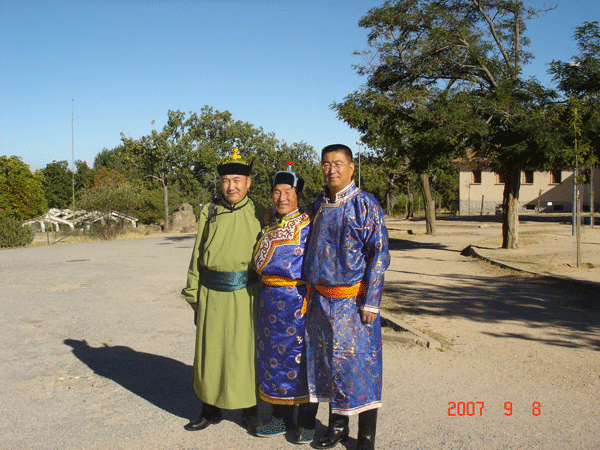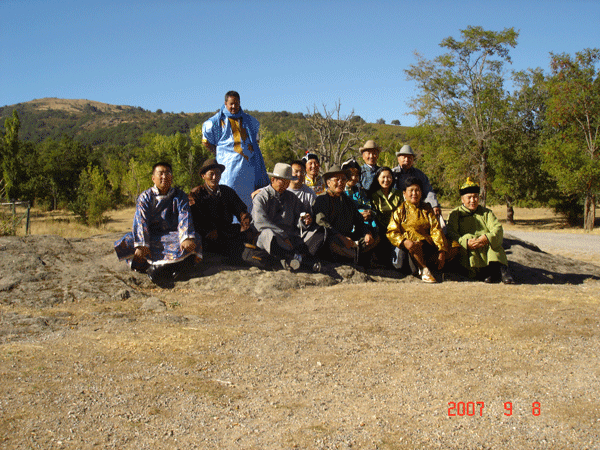| SMHRIC |
| Sep 22, 2007 |
| New York |
 |
|
|
Southern
Mongolian delegates at the Gathering in Segovia,
Spain
|
|
 |
|
|
Delegates from both Southern Mongolia and Northern
Mongolia (independent country of Mongolia)
|
|
Led by the
members of the Southern Mongolian Human Rights Information,
representatives from the Southern Mongolian herder's community
attended the World Gathering of Nomadic and Transhumant
Pastoralist from September 8 to 18, 2007, in Segovia, Spain.
More than
200 pastoral representatives and other actors from 40 different
countries gathered together to exchange information and
experiences on pastoralism and debated different solutions to
the problems faced by nomadic and transhumant herders around the
world. Within the framework of the Millennium Development Goal,
the Gathering was organized to contribute to
the establishment of strong and representative organizations and
networks that will be capable of raising the attention to issues
relevant to pastoralists and defending their needs before
politicians and international institutions.
As planned to
coincide with the traditional transhumance of Spanish shepherds
passing through Madrid, capital of Spain, all participants of
the Gathering from all over the world were able to accompany a
migrating herd as it crosses the city of Madrid on the royal
shepherd road.
Support by the
Spanish Government, the United Nations Development Program and
other donors, the idea of organizing the Gathering was brought
up two years ago by several Spanish organizations on pastoralism
including Plataforma Rural, Red Pastor,
Trashumancia y Naturaleza, and Concejo de la Mesta. Later this
group has been joined by the World Alliance of Mobile Indigenous
Peoples (WAMIP), World Initiative for Sustainable Pastoralism,
International Fund for Agricultural Development, Food and
Agriculture Organization (FAO) of the United Nations, Fundacion
Biodiversidad and Christensen Fund.
The aims
of the Gathering were:
1. To provide the space for dialogue between pastoralists from
around the world;
2. To
foster dialogue between pastoralists and other actors and
influence policies at the global, regional and national level;
3. To
interact with and learn from Spanish and European transhumance
and extensive pastoral system;
The main
themes discussed during the Gathering were:
1. Rights to land and natural resources, mobility, customs and
customary structures;
2. Recognition of the importance of pastoralism for sustainable
livelihoods, biodiversity, climate change, food sovereignty;
3. Provision of mobile services for commercial and social needs
(education, veterinary, health, communications, etc.);
4.
Self-organization and building capacity of their organizations;
5.
Pastoralists access to information and communications,
especially about their rights and policies that affect them, to
be able to participate in key process and decision making
affecting them.
The
Gathering concluded with the "Segovia Declaration" on
pastoralism on September 16, and was followed by the First
Congress of WAMIP to which the members of the Southern Mongolian
Human Rights Information Center and the Southern Mongolian
representatives were invited to attend as members representing
the pastoral community of Southern Mongolia. |





